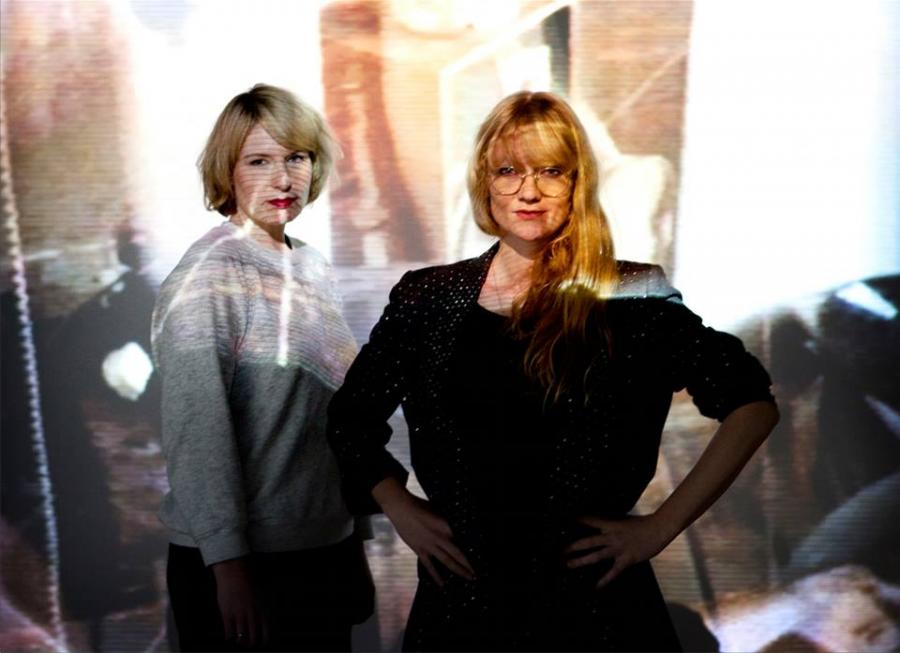The end of a Cycle at PRAXES
The end of a Cycle at PRAXES

After two years, four Cycles, eight presented artistic positions, and more than fifty hosted events, it is time for Rhea Dall and Kristine Siegel, the founding directors of PRAXES Center for Contemporary Art, to close their Berlin venue and take the experiment—of long-term focus on a few artistic practices via an episodic structure of repeated questioning—on the road to redirect and refunction this within the framework of the Bergen Assembly, a triennial for contemporary art in Norway.
We had a chance to catch up with them and talk about what has been achieved throughout these two years at PRAXES, and what is next.
Looking back at these two years, what has been done?
Kristine: It is a bit soon to draw conclusions; it will likely take some time to digest. What we can already say is that, while we aimed to start from scratch at the beginning of each half-year Cycle, all of the eight artistic positions left a mark and became part of the DNA of the house. PRAXES itself was molded by these different practices.
Rhea: It has been two very intense years. We have obviously worked through a violent number of presentations, events, and papers. Both the level of activity and our idea of this being a continuous involvement and conversation with the practices in question have demanded our near constant on-site presence, which is a kind of perseverance that seemed both a necessity and an experiment here in Berlin, a city constantly, nomadically, on the move.
How did you choose the eight artists you worked with?
Kristine: We started out with our wish list of «artists that we always wanted to work with», which for different reasons did not fit the more traditional institutions we have worked with previously, be it because they are complicated to contain in terms of media, variety, or due to their extended time-consuming work-processes. The Cycles at PRAXES were not about producing new work. And they were neither retrospectives, nor simply celebrations of works past. What we were looking for were artists that are interested in having critical conversation around their practices.
Rhea: Since we have always worked with two artistic practices in parallel, another credo was that the «paired» artists did not work in similar strands or have a strong visual resemblance in order to remain clear that the two practices were not to be seen as synchronicities. Much rather, we maintained that each practice is different and thus necessitates separate forms of attention and varied paces—meaning our programming rarely aligned on the two floors.
What's next?
Rhea: Taking PRAXES on the road—and thus moving from an alternative way of working with artistic practices within the «institution» to be testing some of the same questions in the framework of the «art biennial»—has different obvious potentials. Whereas at PRAXES in Berlin we chose to work only with the artists’ current or existing work as part of the process of slowing down and granting a different attention to the practice, in Bergen we will extend our scope to producing works, looking from previous or present work into supporting future productions and ideas stemming from this investigation. To make this feasible, we are expanding the critical time for the investigation from half-a-year to one full year, which will grant proper time for this new component.
Kristine: We have been appointed co-conveners at the second Bergen Assembly, and it speaks a lot to the way we have been working here at PRAXES. The term «convener» points to the fact that it is not a «them against us» situation. The artists here are as much the curators as we are asked to be. A big change is that with the Bergen Assembly, we will not have to be on the ground constantly, having no steady venue, we can start traveling again, seeing new things. The whole biennial started with the quote «to biennial or not to biennial», an awful tagline, but a valid question. Hence, this triennial will be a quite different animal to grasp: there is no official starting date, and we don't have a common name, title, or theme. Keeping with the spirit of PRAXES, we will have the shortest shortlist of artists ever: we will work with two or three artists; and as Rhea said, the timeframe will not be the usual six or eight weeks, but an entire year through which we will repeatedly delve into the same artistic practices over and over again.
Rhea: Another change is that we—with PRAXES in Berlin—have mainly been mining the particular positions, a deliberate decision that came with our both temporal and spatial institutional form. We now have a different option of expanding the interlocution, not only in conversations or events, but also via the tactile qualities of exhibiting in other (non-)artistic venues and via mixing in other objects or artists’ works, as part of unfolding questions in the practices with which we will work.
Anything else to add?
Kristine: It was a hard decision to bring the Berlin venue to a close, but it is the resolved way to stay true to our initial aims and the PRAXES endeavor to focus in and take time. I do think that what will stay with us is the generosity of audiences and attention we found in this city. There was no one single audience throughout these two years. People came and went. Some were interested in one particular artist and maybe not in the next, but we constantly had an engaged, critical mass of interlocutors. In Berlin people take the time to come back and take part in the conversation.